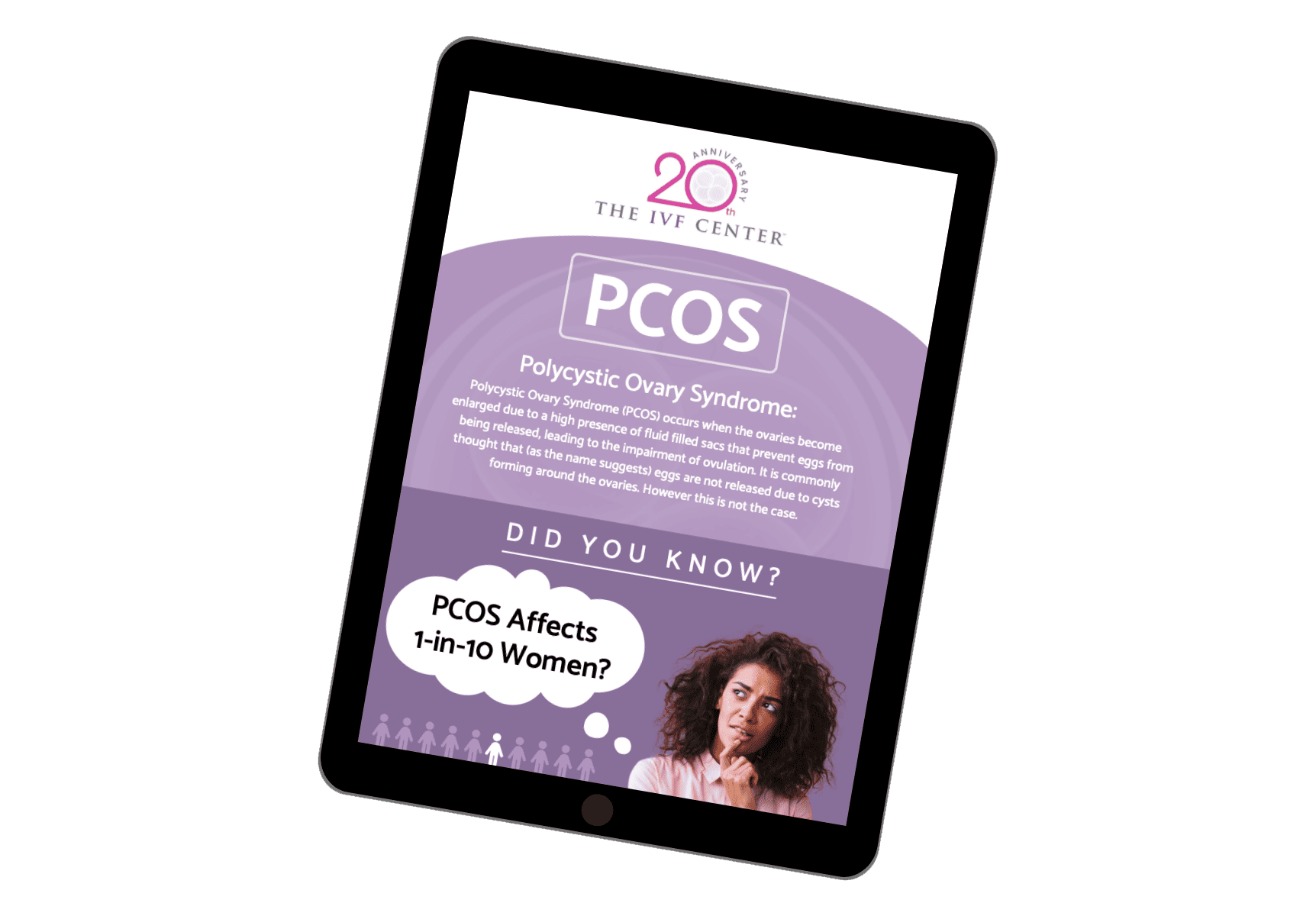Polycystic Ovary Syndrome (PCOS) is a common hormonal disorder that affects many women worldwide. PCOS also affects women trying to get pregnant due to increased issues with infertility.
Its symptoms can be distressing and significantly impact both physical and emotional well-being. While PCOS is a complex condition, the good news is that awareness and research in this area are growing.
In this blog post, we will explain the basics of PCOS, discuss its symptoms and challenges, and share an announcement about a clinical study that aims to shed more light on this condition.

Understanding PCOS
 Polycystic Ovary Syndrome (PCOS) is characterized by an imbalance of hormones, precisely an excess of androgens (male hormones), leading to irregular periods, cysts on the ovaries, and other symptoms. Despite its name, not all women with PCOS will have ovarian cysts, making diagnosing and managing the condition more complex.
Polycystic Ovary Syndrome (PCOS) is characterized by an imbalance of hormones, precisely an excess of androgens (male hormones), leading to irregular periods, cysts on the ovaries, and other symptoms. Despite its name, not all women with PCOS will have ovarian cysts, making diagnosing and managing the condition more complex.
Fertility and PCOS
As we observe PCOS Awareness Month this September, it’s important to shed light on the complex relationship between fertility and this syndrome. In fact, one study on PCOS and infertility showed that 70 to 80% of women with PCOS also have problems conceiving.
PCOS affects millions of individuals worldwide, presenting a range of symptoms that impact their physical and emotional well-being. One of the most significant challenges posed by PCOS is its effect on fertility.
Many women with PCOS face difficulties in conceiving due to irregular menstrual cycles, hormonal imbalances, and ovulatory issues. However, understanding and managing PCOS can greatly enhance fertility prospects.
By raising awareness about PCOS, its symptoms, and available treatments, we can empower those affected to seek timely medical support, adopt healthy lifestyle changes, and make informed choices to navigate their fertility journey with confidence and hope.
Common Symptoms of PCOS
PCOS can manifest in various ways, often leading to symptoms affecting a woman’s quality of life. Some of the common symptoms include:
- Irregular Menstrual Cycles: Women with PCOS might experience irregular periods, heavy bleeding, or infrequent periods.
- Fertility Problems: 70-80% of women with PCOS also suffer from infertility.
- Ovulation Issues: PCOS can disrupt ovulation, leading to difficulties in conceiving.
- Hirsutism: Excess hair growth on the face, chest, and back, attributed to elevated androgen levels.
- Acne and Oily Skin: Hormonal imbalances can lead to skin issues such as acne and excessive oiliness.
- Weight Gain: Many women with PCOS struggle with weight gain and find it challenging to manage their weight.
- Insulin Resistance: PCOS is often associated with insulin resistance, which can contribute to weight gain and other health issues.
Challenges and Coping Strategies
 Living with PCOS can be emotionally and physically taxing. Coping with the symptoms and the potential impact on fertility can be overwhelming. However, there are various strategies that women with PCOS can adopt to manage the condition effectively:
Living with PCOS can be emotionally and physically taxing. Coping with the symptoms and the potential impact on fertility can be overwhelming. However, there are various strategies that women with PCOS can adopt to manage the condition effectively:
- Lifestyle Changes: Maintaining a healthy lifestyle through regular exercise and a balanced diet can help manage PCOS symptoms, improve insulin sensitivity, and aid weight management.
- Medication: Hormonal contraceptives and other medications can be prescribed to regulate periods, manage excess hair growth, and control acne.
- Fertility Treatments: For women struggling with infertility due to PCOS-related ovulation issues, fertility treatments like ovulation induction and in vitro fertilization (IVF) can offer hope.
September is a significant reminder that PCOS is more than just an acronym; it’s a condition that impacts the lives of countless women worldwide. Polycystic Ovary Syndrome presents a complex interplay of hormonal imbalances, manifesting in a range of distressing symptoms that affect both physical and emotional well-being. Its connection to fertility challenges underscores the urgency of raising awareness during PCOS Awareness Month.






